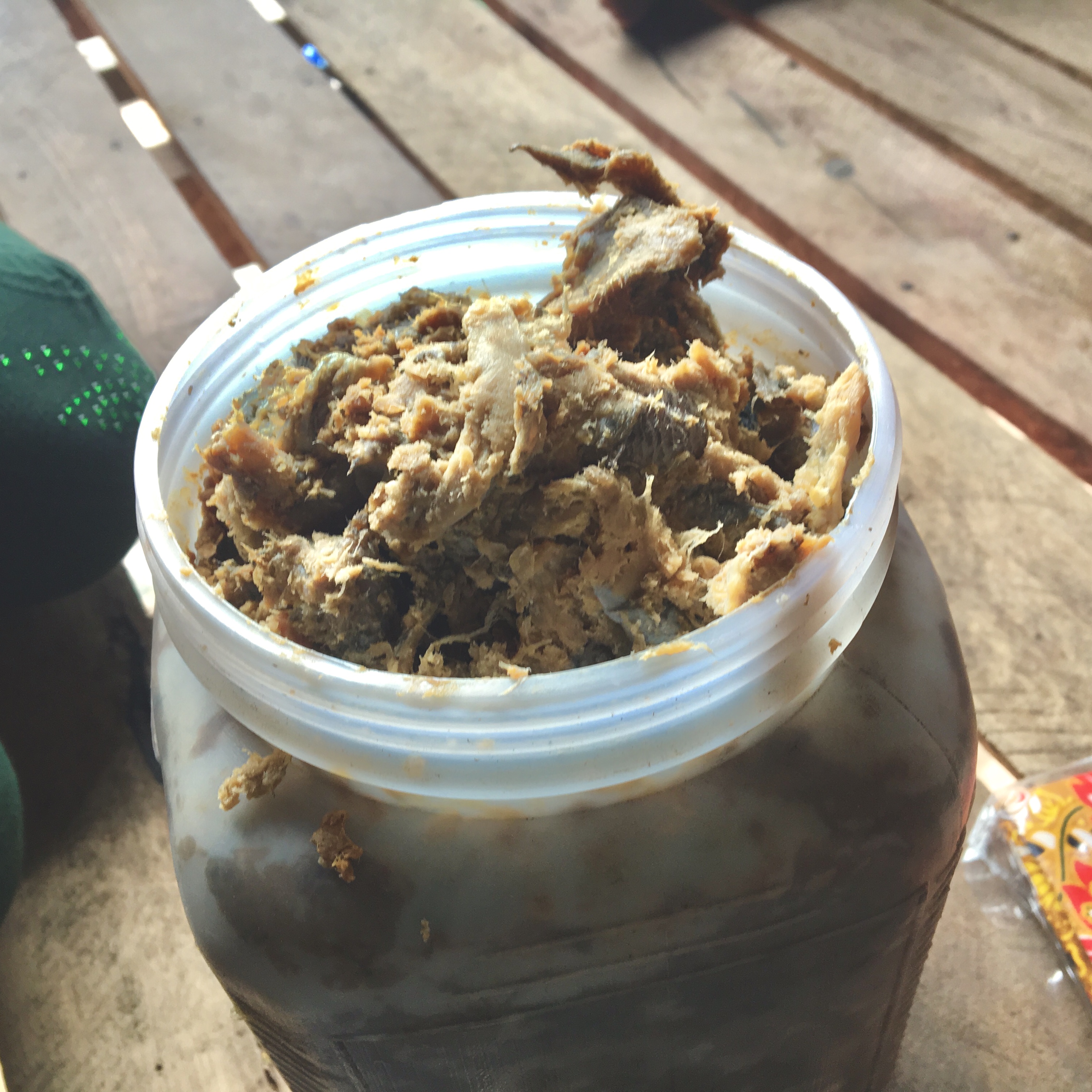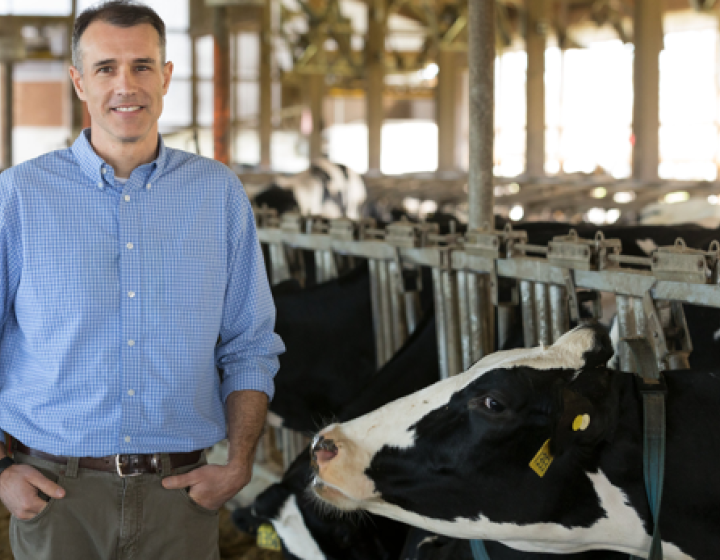Food Security throughout the dry season for Cambodia
Fish is a vital part of the menu in Cambodia, but freshwater fisheries often can’t keep up with demand. To understand the importance of fish products in the diet of Cambodian farmers, Qijin Wang, a second-year student in the Master of Public Health program, put her background in food science to work. She joined the lab of Kathryn Fiorella, assistant professor in population medicine and diagnostic sciences, to assist in her ongoing collaboration with WorldFish, a non-profit research organization that promotes fisheries and aquaculture.
Wang investigated the use of prahok, a salty, fermented fish paste with a long shelf life that each household produces. “It’s considered a low-cost protein source for local low-income families,” said Wang. “During the dry season there are not a lot of fish available, so people consume prahok.”
During the summer of 2018, Wang visited two villages in Cambodia, where she interviewed 14

participants with the help of a local translator. She learned that people consume prahok as a condiment at most meals. It is a basic ingredient in soups and stir fries and mixed into the first foods that babies consume.
Wang also collected samples of prahok to bring back to Cornell for further analysis. The nutritional and microbial analyses are ongoing, but so far, she has discovered that prahok does not carry liver flukes, which is a potential cause of liver cancer in the region. In March, she will present this work at the Consortium of Universities for Global Health conference.
As part of their work in Cambodia, WorldFish has promoted the creation of “community refuge pools,” where wild fish can breed during the dry season. Flooding in the wet season brings the fish into rice patties, where they become food for local farmers. Through the use of prahok, these pools may improve food security for Cambodian households year-round.
By Patricia Waldron




